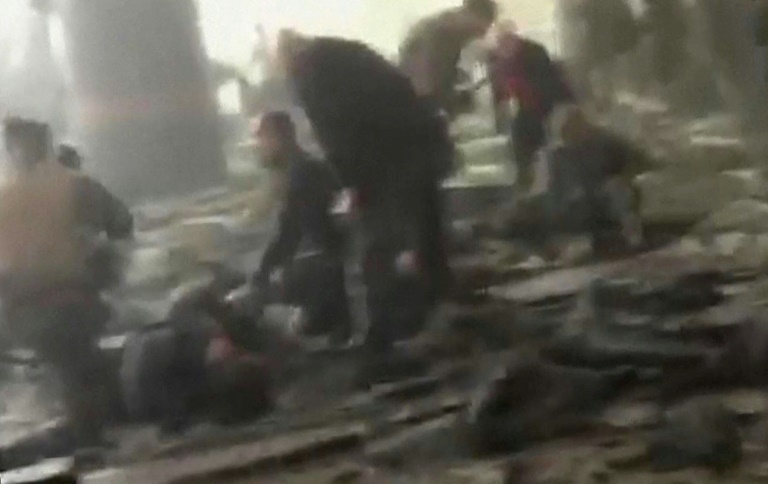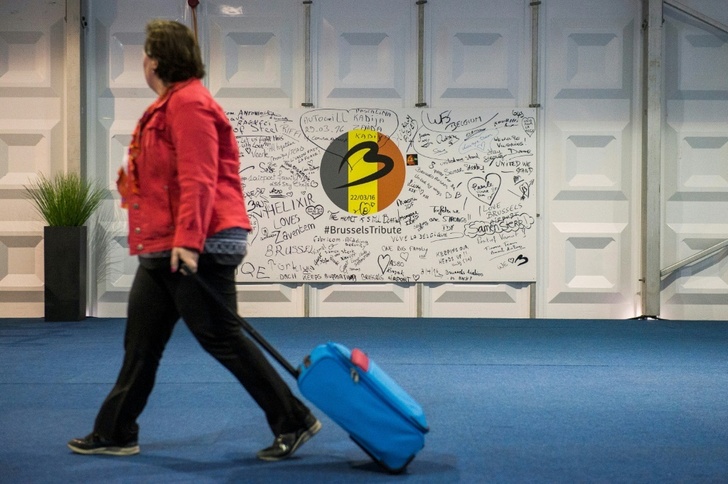Six years after Belgium's deadliest peacetime attack, a Brussels court will this week host a landmark trial that survivors hope will mark a step forward in their recovery and that of their nation.
The case against alleged members of an Islamic State (IS) group cell that launched both the March 2016 suicide bombings in Brussels and the November 2015 attacks in Paris will begin Monday.
The Belgian attacks, in which three suicide bombers hit Brussels airport and a crowded underground metro station, killed 32 people and shattered the lives of hundreds of survivors.
Nine alleged jihadists, including the cell's 32-year-old French ring-leader Salah Abdeslam, will face a variety of charges. One, thought to have been killed in Syria, will be tried in his absence.
The trial will be the largest ever staged in front of a Belgian jury, with 960 civil plaintiffs represented and the sprawling former headquarters of the NATO military alliance converted into a high-security court complex.
Abdeslam, already convicted in France and sentenced to life for his role in Paris, will not attend Monday's preliminary hearing, his lawyer said.
- 'Turn the page' -
But many of the victims of the attacks are planning to attend the trial from day one, seeking understanding and closure following the carnage.
"My life was completely destroyed. I lost my friends, gave up my hobby as a pilot," said Philippe Vandenberghe, an airport manager who rushed to assist wounded passengers and now suffers from post-traumatic stress disorder.
Vandenberghe had a first aid certificate, but nothing to prepare him for the aftermath of an indiscriminate suicide bombing on a crowded airport concourse.

The image of two children who had just lost their mother haunts him.
"I gave first aid to 18 different people. I'm sure that I saved one woman," the 51-year-old told AFP at his home in Louvain-la-Neuve.
Today he is unemployed, after a legal battle with his former employer and insurer over medical bills. He paints, helps out charity groups and is training as an ambulance driver.
On Monday he will be in court, hoping that the trial will mark the start of a new stage in his recovery.
"We're hoping that our suffering will be recognised, that's the important part," he said.
Before the bombings Sebastien Bellin, now 44, was a professional basketballer. Now, after around 15 surgeries, he has lost the use of one of his legs, and still re-lives the experience.
"I don't know if one can turn the page, what happened will always exist within us," he said.
"Personally, I've given up on all hate, that would waste the energy I need to rebuild myself. I've also accepted my handicap," he said, describing the trial as an "important step".
Some victims and witnesses won't attend the hearings. Police commander Christian De Coninck will follow from home, doubtful the accused will say anything constructive.
"They're not worth my time to make the trip," he told AFP. "I don't want to hear them spouting rubbish about their unhappy childhoods, the influential imams, the duty to fight for the caliphate."
After Monday's preliminary hearing, the court will sit again on October 10 to choose 12 jurors and 24 potential substitutes. Evidential hearings will begin on October 13 and last eight months, until June next year.
mad/dc/arp/gw
© Agence France-Presse
Your content is great. However, if any of the content contained herein violates any rights of yours, including those of copyright, please contact us immediately by e-mail at media[@]kissrpr.com.
Source: Story.KISSPR.com

